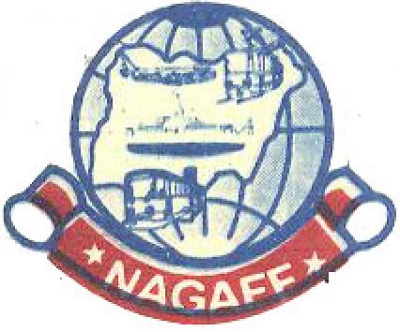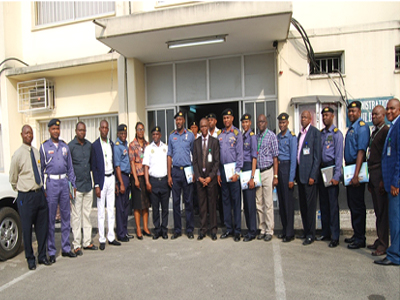Shippers Urge FG To Prioritize Trade Facilitation, Address Port Crisis
By Kenneth Jukpor

As part of efforts to enhance the ease of doing business at the seaports and other key economic strata of governance, Nigerian shippers have encouraged the federal government to prioritize trade facilitation as its economic stance in 2022.
The Shippers Association of Lagos State (SALS) made this call last week when its new spokesman, Dr. Kayode Farinto addressed journalists, lamenting that numerous constraints at the seaports, fiscal policies, trade infractions and other factors have seen shippers suffer humongous losses in recent years.
According to Farinto, the harsh operational environment adds to the cost of shipping and leads to inflated prices on imported goods and services with the generality of Nigerians suffering the brunt of port sector inefficiencies because the shipper must make profits on the imports.
He, however, asserted that the federal government would eventually get its much desired revenue when trade facilitation is prioritized as more cargo traffic will be guaranteed.
Farinto also noted that the emergence of Nigerian Shippers’ Council (NSC) as the nation’s port economic regulator has been a major distraction that has seen the agency pay less attention to its initial mandate of protecting the interest of shippers.
While the SALS spokesman appreciated the role of NSC as the port economic regulator, he observed that the added responsibility of port economic regulation has seen the agency tilt towards some stakeholders in the sector at the expense of shippers.
“Although I’m one of the apostles that believes that NSC should be the port economic regulator, if you look at the Establishing Act of NSC you will see that it is primarily saddled with the responsibility of protecting shippers. Now that there is an added responsibility of being an economic regulator, the agency has to be fair while addressing various concerns in the sector; perhaps that’s why Shippers’ Council is tilting towards one-side,” Farinto said.
Meanwhile, the SALS spokesman expressed dissatisfaction in NSC’s handling of crucial issues affecting shippers especially those brought forward by SALS, noting that the association has decided to vacate its second-floor accommodation at the Council’s corporate headquarters over ill-treatment and NSC’s failure to protect cargo owners.
According to him, the shippers’ association perceives that if it is no longer housed under the NSC accommodation arrangement, the pleas and complaints of the group would be listened to.
He, however, stated that SALS would collaborate with the national body of shippers to monitor the Cargo Defence Fund (CDF) which presently has its bill before the National Assembly.
Noting that a similar fiscal intervention like the Cabotage Vessel Financing Fund (CVFF) has suffered numerous challenges that have made the fund unaccessible, Farinto said that shippers would partner with government agencies in order to avoid controversies that may rise against the CDF.
“Cargo Defence Fund is there to help shippers cushion the effect of the harsh realities of the economy in the face of COVID-19 and other issues. This year, we will look into it to ensure it doesn’t become moribund like the CVFF,” he posited.
The Cargo Defence Fund, also known as The Fund, is an initiative of NSC. It is a company limited by guarantee set up as a Cargo Protection & Indemnity (Cargo P & I) scheme. It was established to mitigate losses incurred by shippers, especially small time importers and exporters, who may not have the financial muscle to pursue their legitimate maritime claims.







